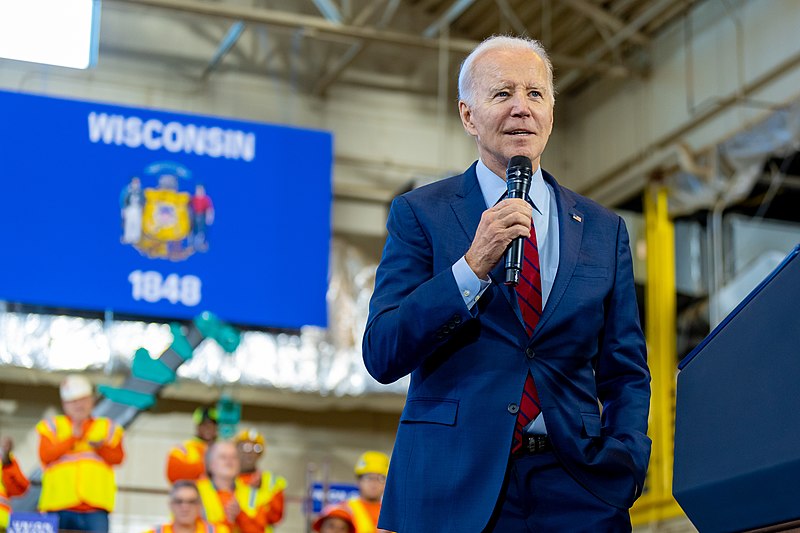The Biden administration is set to unveil an overhaul of its arms sales policy this week. The new policy will have an increased focus on human rights.
Three state department officials familiar with the matter told Reuters that the Biden administration will be unveiling on Thursday an overhaul of its arms exports policy. The revamped policy, also called the Conventional Arms Transfer policy, will now put more emphasis on human rights.
The CAT policy covers the review of security assistance, government-to-government weapons transfers, and licensed commercial sales of US-made military equipment and services that are overseen by the State Department, the Defense Department, and the Commerce Department. This would also include firearms that are available in the United States.
Such policies are scrutinized by defense firms and activists for insight into the administration’s stance in balancing the commercial interests of exporters such as Lockheed Martin Co. and Raytheon Technologies against the country’s commitment to human rights. The CAT policy would address the possibility that arms from the US could be used to commit human rights violations, according to the officials.
In the CAT policy, new weapons transfers will not be approved if the State Department determines that the arms will “more likely than not” be used to commit or facilitate genocide, crimes against humanity, breaches of the Geneva Conventions, or violations of international law. Previous CAT policy said arms transfers would not be authorized only when Washington had “actual knowledge” that the arms would be used in committing such actions.
The officials did not say which countries the new CAT policy may affect.
Meanwhile, the Biden administration announced that it would be choosing 11 organizations across the country to administer $550 million in grants to disadvantaged communities to reduce legacy pollution and gaining access to clean energy.
The Environmental Protection Agency will be funding the organizations, which include non-profit groups, tribal nations, and universities that will become grantmakers for the new Environmental Justice Thriving Communities Grantmaking program that aims to invest in community-led projects in areas that have long suffered air and water pollution.
The funds are part of a $3 billion provision for environmental justice grants that are authorized by Congress through the Inflation Reduction Act.



 Trump Allows Commercial Fishing in Protected New England Waters
Trump Allows Commercial Fishing in Protected New England Waters  Ghislaine Maxwell to Invoke Fifth Amendment at House Oversight Committee Deposition
Ghislaine Maxwell to Invoke Fifth Amendment at House Oversight Committee Deposition  Trump Congratulates Japan’s First Female Prime Minister Sanae Takaichi After Historic Election Victory
Trump Congratulates Japan’s First Female Prime Minister Sanae Takaichi After Historic Election Victory  Bosnian Serb Presidential Rerun Confirms Victory for Dodik Ally Amid Allegations of Irregularities
Bosnian Serb Presidential Rerun Confirms Victory for Dodik Ally Amid Allegations of Irregularities  Trump Says “Very Good Talks” Underway on Russia-Ukraine War as Peace Efforts Continue
Trump Says “Very Good Talks” Underway on Russia-Ukraine War as Peace Efforts Continue  Trump Slams Super Bowl Halftime Show Featuring Bad Bunny
Trump Slams Super Bowl Halftime Show Featuring Bad Bunny  Trump Backs Nexstar–Tegna Merger Amid Shifting U.S. Media Landscape
Trump Backs Nexstar–Tegna Merger Amid Shifting U.S. Media Landscape  Netanyahu to Meet Trump in Washington as Iran Nuclear Talks Intensify
Netanyahu to Meet Trump in Washington as Iran Nuclear Talks Intensify  Trump Administration Appeals Court Order to Release Hudson Tunnel Project Funding
Trump Administration Appeals Court Order to Release Hudson Tunnel Project Funding  Taiwan Says Moving 40% of Semiconductor Production to the U.S. Is Impossible
Taiwan Says Moving 40% of Semiconductor Production to the U.S. Is Impossible  Japan’s Prime Minister Sanae Takaichi Secures Historic Election Win, Shaking Markets and Regional Politics
Japan’s Prime Minister Sanae Takaichi Secures Historic Election Win, Shaking Markets and Regional Politics  Trump Lifts 25% Tariff on Indian Goods in Strategic U.S.–India Trade and Energy Deal
Trump Lifts 25% Tariff on Indian Goods in Strategic U.S.–India Trade and Energy Deal  Nicaragua Ends Visa-Free Entry for Cubans, Disrupting Key Migration Route to the U.S.
Nicaragua Ends Visa-Free Entry for Cubans, Disrupting Key Migration Route to the U.S.  Bangladesh Election 2026: A Turning Point After Years of Political Suppression
Bangladesh Election 2026: A Turning Point After Years of Political Suppression  Anutin’s Bhumjaithai Party Wins Thai Election, Signals Shift Toward Political Stability
Anutin’s Bhumjaithai Party Wins Thai Election, Signals Shift Toward Political Stability  China Warns US Arms Sales to Taiwan Could Disrupt Trump’s Planned Visit
China Warns US Arms Sales to Taiwan Could Disrupt Trump’s Planned Visit  Sydney Braces for Pro-Palestine Protests During Israeli President Isaac Herzog’s Visit
Sydney Braces for Pro-Palestine Protests During Israeli President Isaac Herzog’s Visit 































